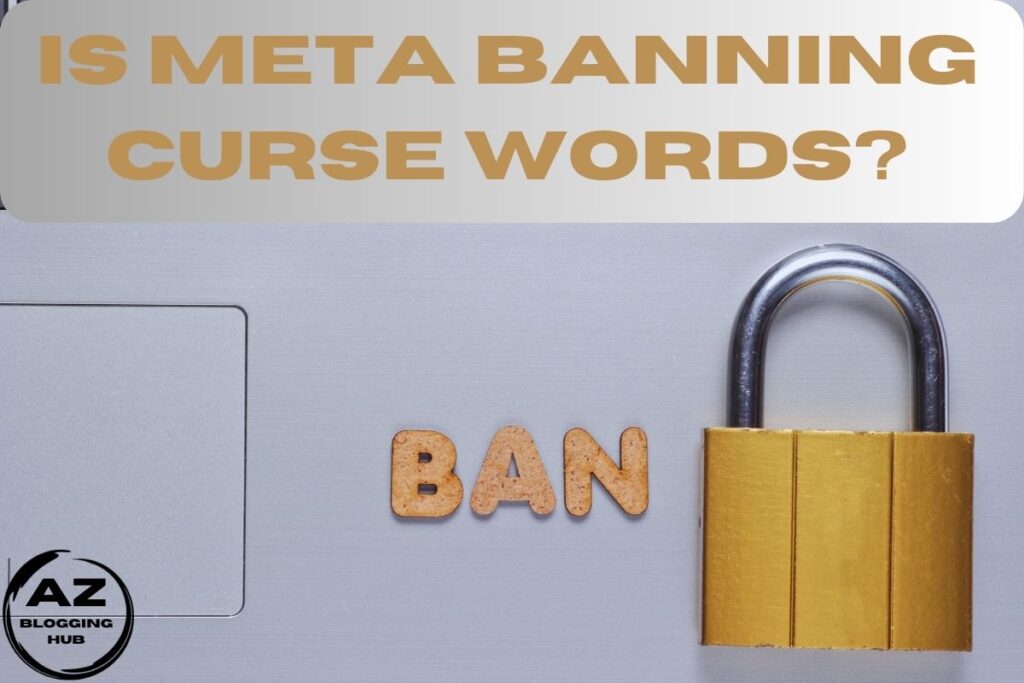- Is Meta Banning Curse Words?
- Content Detection: What Sparked the Rumors?
- Meta's Algorithms: Meta's Official Stance
- AI in Content Moderation: How AI Moderation Works
- Step-by-Step Guide: How AI Detects Inappropriate Language
- Automated Moderation: Real-World Implications
- Anecdote: The Double-Edged Sword
- Algorithmic Filtering: The Balance Between Free Speech and Safety
- Transition: Bridging the Gap
- Machine Learning Content: Alternatives for Users
- Step-by-Step Guide: Joining a Decentralized Platform
- Social Media AI: Enhancing Your Social Media Experience
- Tips for Navigating Meta's Content Policies
- Conclusion
- FAQs on "Is Meta Banning Curse Words?"
Is Meta Banning Curse Words?
In recent months, there’s been a lot of buzz about Meta (formerly Facebook) implementing a ban on curse words. The topic has sparked numerous discussions and debates, leaving many users wondering if this is true and, if so, how it might affect their online interactions. In this article, we’ll delve into the details, explore the implications, and provide a clear understanding of what’s really happening with Meta and curse words.
- Is Meta Banning Curse Words?
- Content Detection: What Sparked the Rumors?
- Meta's Algorithms: Meta's Official Stance
- AI in Content Moderation: How AI Moderation Works
- Step-by-Step Guide: How AI Detects Inappropriate Language
- Automated Moderation: Real-World Implications
- Anecdote: The Double-Edged Sword
- Algorithmic Filtering: The Balance Between Free Speech and Safety
- Transition: Bridging the Gap
- Machine Learning Content: Alternatives for Users
- Step-by-Step Guide: Joining a Decentralized Platform
- Social Media AI: Enhancing Your Social Media Experience
- Tips for Navigating Meta's Content Policies
- Conclusion
- FAQs on "Is Meta Banning Curse Words?"
Content Detection: What Sparked the Rumors?
The speculation about Meta’s ban on curse words began when several users noticed their posts and comments being flagged or removed for containing profanity. Social media platforms, including Facebook and Instagram, have long had guidelines against offensive language, but the recent increase in moderation actions led many to believe that a stricter policy was being enforced.
Meta’s Algorithms: Meta’s Official Stance
Meta has always aimed to create a safe and welcoming environment for all users. According to their Community Standards, they prohibit hate speech, harassment, and explicit content, which includes excessive profanity. However, Meta has not officially announced a new policy specifically targeting curse words. Instead, the enforcement of existing guidelines might have become more stringent due to advancements in AI moderation technology.
AI in Content Moderation: How AI Moderation Works
Meta employs Artificial Intelligence (AI) and machine learning algorithms to help monitor content across its platforms. These systems are designed to detect and remove content that violates community standards. The use of AI in moderation isn’t new, but continuous improvements mean these systems are becoming more adept at identifying inappropriate language.
Step-by-Step Guide: How AI Detects Inappropriate Language
Automated Moderation: Real-World Implications
The implications of Meta’s enhanced moderation can be significant for users who frequently use strong language. For some, this may feel like an infringement on free speech, while others may appreciate a cleaner, more respectful online space. It’s essential to understand both sides of the argument.
Anecdote: The Double-Edged Sword
Take John, for instance, an avid Facebook user who enjoys lively debates in various groups. John noticed that some of his comments were being removed, even when he didn’t intend to offend anyone. Frustrated, he felt his freedom of expression was being stifled. On the other hand, Sarah, a mother of two young children, was relieved to see less offensive language on her feed, making her feel more comfortable using the platform.
Algorithmic Filtering: The Balance Between Free Speech and Safety
Meta’s challenge is to strike a balance between protecting free speech and maintaining a safe environment for all users. This delicate balance involves constant adjustments and updates to their moderation policies and technologies.
Transition: Bridging the Gap
To bridge the gap between free expression and safety, Meta could consider more transparent communication about their policies and moderation practices. This would help users understand the reasons behind content removal and reduce misunderstandings.
Machine Learning Content: Alternatives for Users
For users who feel constrained by Meta’s policies, there are alternatives to express themselves freely. Decentralized social media platforms like Mastodon and Diaspora offer more relaxed content moderation, allowing users to set their own community standards.
Step-by-Step Guide: Joining a Decentralized Platform
1.Research: Look into different decentralized platforms to find one that suits your preferences.
2.Sign Up: Create an account on the chosen platform.
3.Explore Communities: Join groups and communities that align with your interests.
4.Set Your Standards: Participate in setting and enforcing community guidelines.
Social Media AI: Enhancing Your Social Media Experience
Whether you choose to stay on Meta’s platforms or explore alternatives, there are ways to enhance your social media experience while adhering to guidelines.
Tips for Navigating Meta’s Content Policies
1.Stay Informed: Regularly review Meta’s Community Standards to stay updated on what’s allowed.
2.Use Positive Language: Opt for positive and constructive language to avoid flags.
3.Appeal Decisions: If you believe your content was unfairly removed, use the appeal process to seek a review.
4.Engage Respectfully: Engage in discussions respectfully and considerately to foster a positive online environment.
Conclusion
The rumors about Meta banning curse words stem from an increase in content moderation actions, driven by advancements in AI technology. While there’s no official ban, the stricter enforcement of existing guidelines aims to create a safer online space. Users must navigate these changes and find a balance between free expression and respectful communication. By staying informed and adapting to the evolving landscape, you can continue to enjoy a positive social media experience.



